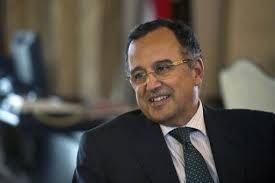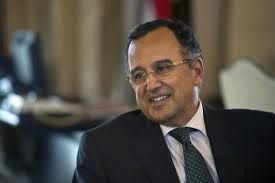Egypt’s foreign minister Nabil Fahmy was travelling to the United States on Wednesday, his ministry said, a day after Washington decided to provide Cairo with 10 Apache military helicopters.
Egypt's foreign minister Nabil Fahmy was travelling to the United States on Wednesday, his ministry said, a day after Washington decided to provide Cairo with 10 Apache military helicopters.
the United States on Wednesday, his ministry said, a day after Washington decided to provide Cairo with 10 Apache military helicopters.
Washington had imposed a temporary freeze on the delivery of major weapons to Egypt, including the Apaches, following the military-installed authorities' brutal crackdown on supporters of Islamist president Mohammad Mursi since his ouster last July.
Fahmy is expected to meet officials in Washington and UN chief Ban Ki-moon during his visit. He is also due to meet representatives of think-tanks and will speak at a seminar in San Francisco, the ministry said, without specifying how long the trip will last.
US officials said on Tuesday Washington will provide Cairo with the 10 Apache aircraft to strengthen Egypt's counter-terrorism operations in the restive Sinai Peninsula where it is fighting a growing militancy.
The US has struggled to balance its concerns over human rights abuses with a strategic interest in keeping up counter-terrorism ties with Cairo and maintaining the Egyptian-Israeli "peace accord".
As a result, Washington has chosen not to cut off all aid to Egypt's military-installed government.
Pentagon chief Chuck Hagel informed his Egyptian counterpart General Sedki Sobhy of the decision on Tuesday in a telephone call, but told the general that "we are not yet able to certify that Egypt is taking steps to support a democratic transition".
Hagel "urged the Egyptian government to demonstrate progress on a more inclusive transition that respects the human rights and fundamental freedoms of all Egyptians".
Egypt will hold a presidential election on May 26-27, which former army chief Abdel Fattah al-Sisi is expected to win. He is riding a wave of popularity after ousting Mursi.
The military-installed authorities are engaged in a deadly crackdown against Mursi supporters that has left more than 1,400 people killed since July.
